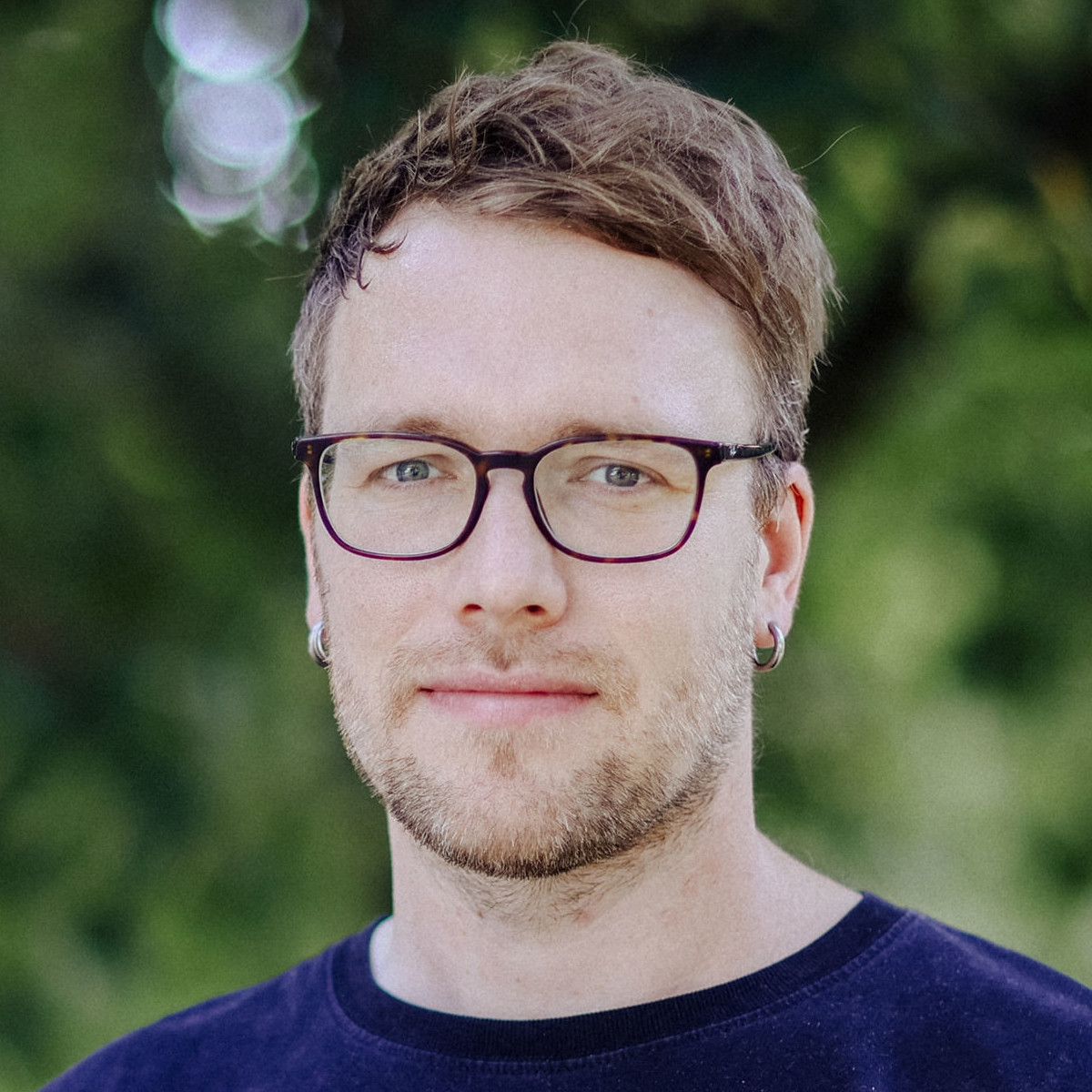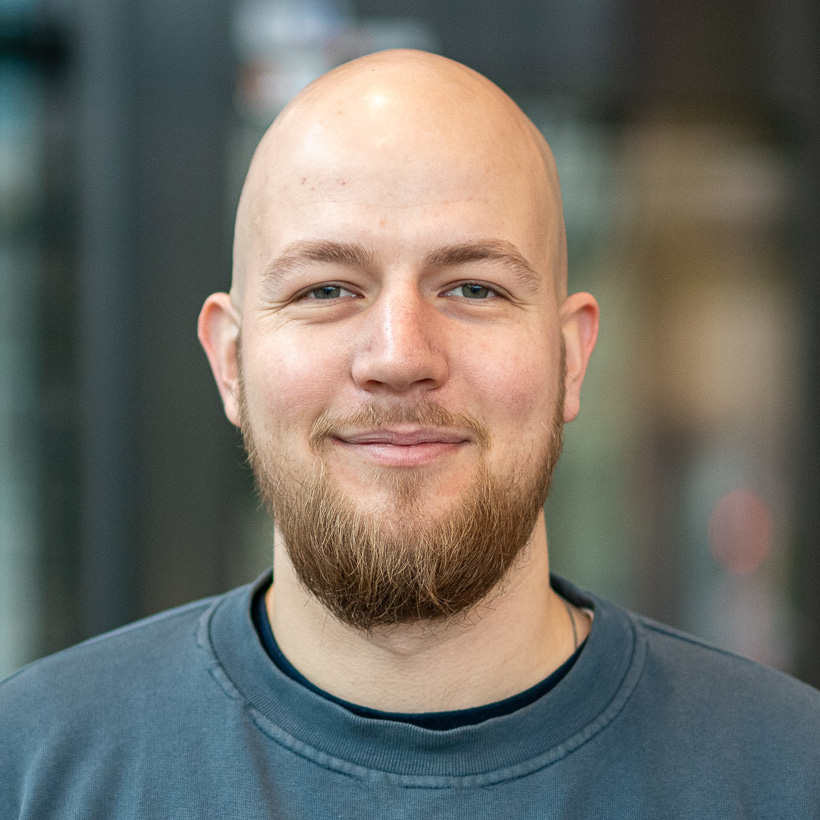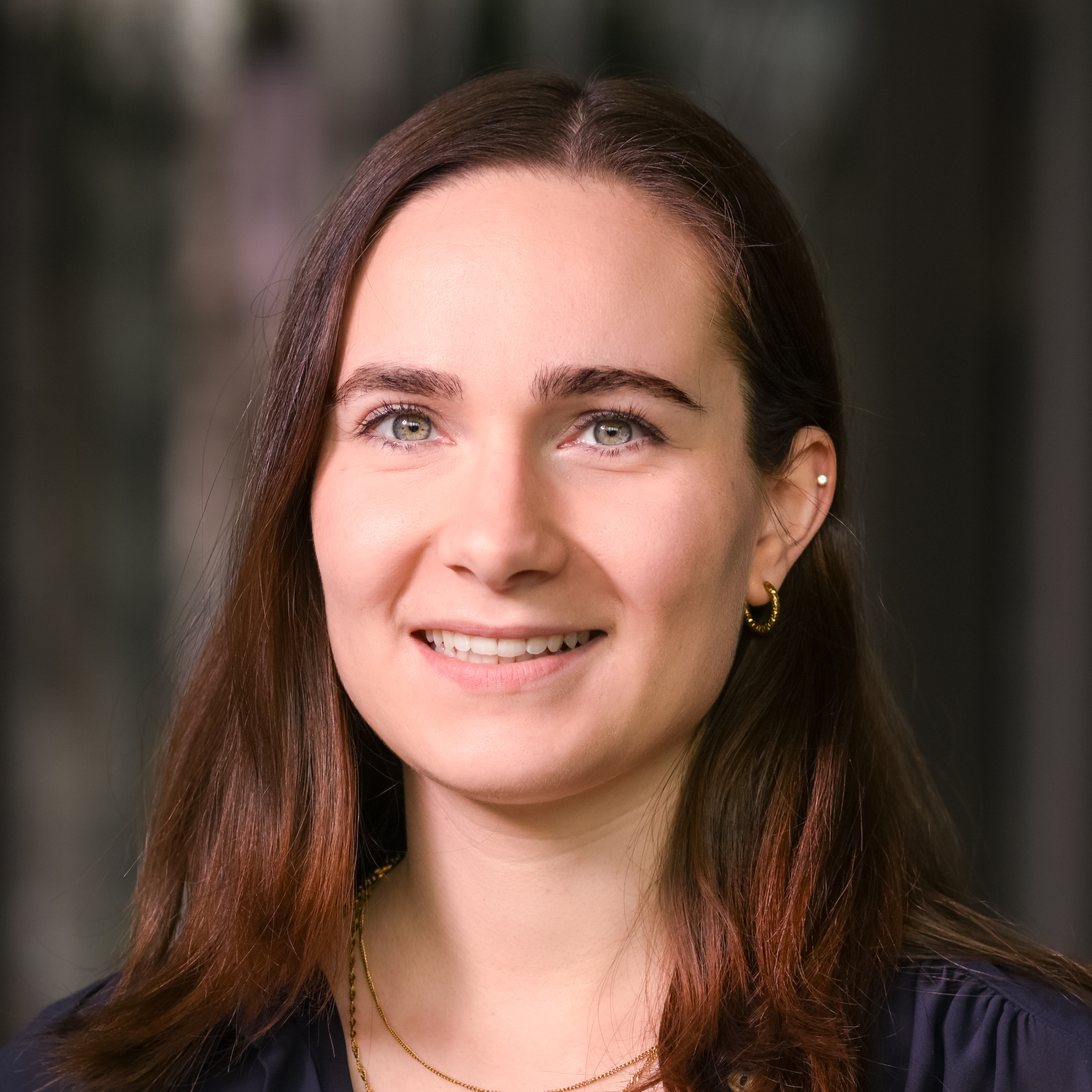Research Group ISASIntegrated Sustainability Assessment of Societal Systems and Bioeconomy |
|
About the Research Group
We explore one of the most pressing questions of our time: How can we achieve a good life for all while staying within planetary boundaries?
As a research group, we:
- Support the view from an environmental and social perspective that a bioeconomy and circular economy are key components of a social-ecological transformation, while emphasizing that they are not inherently sustainable and require critical assessment.
- Develop and apply extended Life Cycle Assessment and Input/Output methods and models (HILCSA, CDEP, RESPONSA) as tools to evaluate the sustainability of production and consumption systems as societal metabolisms in their technical and societal dimensions, i.e. to identify vialable concrete solutions for social-ecological transformations on which and how much resources can be used through which economic, technological, and societal practices to sustainably satisfy societal needs.
- Provide expertise in bioeconomy system analysis, strategy development, social-ecological transformations, regional sustainability assessments, low TRL assessments, stakeholder participation, and science communication.
- Operate in a collaborative, inter- and transdisciplinary setting, engaging with universities, research institutions, municipalities, companies, policy actors, and civil society.
- Contribute to ongoing debates on post-growth economies, democratic planning, and absolute sustainability.
Team
|
Head of Research Group |
Postdocs | PhDs und Researchers |
| Dr.-Ing. Walther Zeug | Dr.nat.techn. Enrique A. Perdomo E. | M.Sc. Matthias Welker |

|

|

|
| M.Sc. Madeleine Pries | ||

|
||
|
|
|
|
|
Research Assistants |
Fellows | Alumni |
| Julian Liebau | Dr. Joël Foramitti (08/2025 - 11/2025) |
Humanity’s current relationship with nature has led to a profound socio-ecological crisis—characterized by the transgression of planetary boundaries and the persistent inequality and insufficiency in meeting societal needs.
To address this challenge, our research group ISAS -part of the Department of System Analysis and Sustainability Assessment (SANA)- engages in a solution-oriented, inter- and transdisciplinary research program. We aim to identify viable sustainable societal metabolisms for meeting societal needs within planetary and regional boundaries - by exploring which resources can be used, in what quantities, and through which technological, economic, and societal practices. To this end, we apply innovative Life Cycle Assessment and Input–Output methods and models, critically informed by social science perspectives. These tools allow us to analyze production and consumption systems in both their technological and societal dimensions, supporting well-informed decision-making and planning at regional, national, and global scales.
We recognize that a genuine socio-ecological transformation requires fundamental changes in political institutions, economic systems, and lifestyles. This includes shifting away from fossil resources toward the sustainable use of renewable ones such as wind, solar, water, and biomass. However, bioeconomy and circular economy strategies must be critically assessed, as they often involve trade-offs, potential rebound effects, and social tensions. Therefore, we emphasize the design of effective, efficient, and just provisioning systems.
HILCSA
The Holistic and Integrated Life Cycle Sustainability Assessment (HILCSA) method, developed at UFZ, enables robust assessments of the ecological, economic, and social sustainability of production and consumption systems. Based on ISO 14040/44 standards, HILCSA integrates Life Cycle Assessments (LCA) with strategic system monitoring, scenario analysis, and early-stage (low TRL) technology evaluation. It supports strategic decision-making in research, policy, and industry and is fully integrated into openLCA, licensed for both commercial and non-commercial use.
RESPONSA
REgional SPecific cONtextualised Social Life Cycle Assessment (RESPONSA) evaluates the socio-economic impacts of products and value chains on stakeholders, using detailed, region-specific primary data. The method identifies social hotspots and opportunities along the life cycle of products, from organizational to regional scales.
Cybernetic Democratic Economic Planning (CDEP)
CDEP is a pioneering scientific model for democratic economic planning, integrating cybernetic approaches with methods from environmental and sustainability sciences. It uses biophysical and social tokens, calculated via HILCSA, to quantify the resource, climate, and social "price" of products and services. Currently under development, CDEP aims to provide a practical tool for democratic decision-making and absolute sustainability assessments—contributing concrete solutions for a socio-ecological transformation, i.e. to identify vialable concrete solutions for social-ecological transformations on which and how much resources can be used through which economic, technological, and societal practices to sustainably satisfy societal needs.
Social factors—such as perceptions, narratives, and ideologies—play a central role in sustainability transitions. We design and apply participatory tools (e.g. surveys, workshops) to enable inclusive, credible, and transparent stakeholder engagement, helping to co-create solutions from the outset.
Visions of the Bioeconomy
The bioeconomy is interpreted and promoted in diverse ways across policy levels—from growth-oriented, biotech-driven strategies to agro-ecological, degrowth perspectives. We investigate these competing visions, using qualitative and mixed methods (e.g. Q-methodology, document analysis, stakeholder surveys) to understand their implications for sustainability transitions.
We contribute to the University of Leipzig through the course “Life Cycle Analyses and Sustainability”, sharing our expertise with students and future professionals.
| Ongoing Projects |
|
| LeFOS | Holistic and integrated sustainability assessment of the innovative extraction of sugars from residues from sugar beet processing |
| Begleit-DiP | Accompanying research on the digitalization of plant-based value chains for the development of a participatory and learning sustainability monitoring |
| VALUE4FARM | Sustainable renewable energy VALUE chains for answering FARMers’ needs |
| SYMOBIO2Plus | |
| Bridging Social Sciences and Engineering | Internal Collaboration Activities at UFZ |
| Completed Projects |
|
| see SABE | Completed projects of the former SABE Group |
Index:
You could use our publication index for further requests.
2026 (3)
- Pries, M., Zeug, W., Thrän, D. (2026):
Holistic and integrated life cycle sustainability assessment of community supported agriculture: a case study of school catering in Leipzig, Germany
Clean Responsible Consum. 20 , art. 100372 10.1016/j.clrc.2025.100372 - Puricelli, S., Zeug, W., Cecere, G., Dolci, G., van den Oever, A., Rigamonti, L., Grosso, M., Bezama, A. (2026):
Navigating through Holistic and Integrated LCSA of passenger cars with different power supply: Methodological limitations and research needs
J. Environ. Manage. 398 , art. 128499 10.1016/j.jenvman.2025.128499 - Temmink, R.J.M., Lång, K., Vroom, R.J.E., Leifeld, J., Fritz, C., Zeug, W., Thrän, D., Kleinspehn, C., Gaudig, G., Neubert, J., Kreyling, J., Rhymes, J.M., Evans, C.D., Kotowski, W., Nordt, A., Tanneberger, F. (2026):
Agriculture on wet peatlands: the sustainability potential of paludiculture
Agric. Syst. 231 , art. 104561 10.1016/j.agsy.2025.104561
2025 (4)
- Hauser, E., Müller-Langer, F., del Carmen Granford-Ruiz, D., Pfennig, M., Zink, C., Zeug, W., Scholz, A. (2025):
Schaffung von Grundlagen einer nachhaltigen Produktion von grünem Wasserstoff und dessen Folgeprodukte in ausgewählten Exportländern
In: Reuter, A., Mackensen, R. (Hrsg.)
Die Energiewende mit Forschung beschleunigen. Beiträge zur FVEE-Jahrestagung 2024, Berlin, 08-09 October 2024
FVEE-Themen 2024
ForschungsVerbund Erneuerbare Energien (FVEE), Berlin, 30 - 35 10.5442/t2024 - Zeug, W., Mirutko, A., Uppal, A., Bezama, A. (2025):
Handlungsfelder und Maßnahmen aus Kreislaufwirtschaft und nachhaltiger Bioökonomie für Klimaschutz in Sachsen-Anhalt: Fallstudien zu Baustoffen, Ernährung und Bioraffinerien
Helmholtz-Zentrum für Umweltforschung - UFZ, Leipzig, 51 S. - Zeug, W., Zinke, C., Jordan, M., Thrän, D. (2025):
Monitoring Bioökonomie: SYMOBIO 2.0 - Konsolidierung des Systemischen Monitorings und der Modellierung der Bioökonomie - WP 7.1, 7.2 & 1.4
RENATE
178 pp. 10.34657/25691 - Zinke, C., Karr, S.M., Zeug, W., Thrän, D., Bezama, A. (2025):
A guide to applying life cycle assessment tools to prospective technologies at the UFZ
UFZ Discussion Papers 3
Helmholtz-Zentrum für Umweltforschung - UFZ, Leipzig, 32 pp.
2024 (7)
- Beck-O'Brien, M., Bringezu, S., Banse, M., Barrelet, J., Bezama, A., Bösch, M., Brüning, S., Bührlen, B., Cabezas, A., Cyffka, K.-F., Dzene, I., Gordillo Vera, F., Helander, H., Henke, J., Hennenberg, K., Hinz, R., Iost, S., Jordan, M., Kilian, D., Köppen, S., Kynast, E., Lutz, C., Pereira, S., Pfeiffer, M., Phuntsho, , Pozo Inofuentes, P., Reiss, T., Reuschel, S., Richter, S., Schaldach, R., Scheffler, M., Schomberg, A., Schüngel, A., Schweinle, J., Thrän, D., Wang, M., Weimar, H., Wiegmann, K., Wijesingha, J., Wilske, B., Wydra, S., Zeug, W., Zinke, C. (2024):
Monitoring der deutschen Bioökonomie - Zusammenfassung
Center for Environmental Systems Research (CESR), Universität Kassel, Kassel, 21 S. 10.17170/kobra-2024111510678 - Beck-O'Brien, M., Bringezu, S., Banse, M., Barrelet, J., Bezama, A., Bösch, M., Brüning, S., Bührlen, B., Cabezas, A., Cyffka, K.-F., Dzene, I., Gordillo Vera, F., Helander, H., Henke, J., Hennenberg, K., Hinz, R., Iost, S., Jordan, M., Kilian, D., Köppen, S., Kynast, E., Lutz, C., Pereira, S., Pfeiffer, M., Phuntsho, , Pozo Inofuentes, P., Reiss, T., Reuschel, S., Richter, S., Schaldach, R., Scheffler, M., Schomberg, A., Schüngel, A., Schweinle, J., Thrän, D., Wang, M., Weimar, H., Wiegmann, K., Wijesingha, J., Wilske, B., Wydra, S., Zeug, W., Zinke, C. (2024):
Monitoring the German Bioeconomy: Status, performance, trends and implications for sustainable development
Center for Environmental Systems Research (CESR), Universität Kassel, Kassel, 193 pp. 10.17170/kobra-2024111510679 - Beck-O'Brien, M., Bringezu, S., Banse, M., Barrelet, J., Bezama, A., Bösch, M., Brüning, S., Bührlen, B., Cabezas, A., Cyffka, K.-F., Dzene, I., Gordillo Vera, F., Helander, H., Henke, J., Hennenberg, K., Hinz, R., Iost, S., Jordan, M., Kilian, D., Köppen, S., Kynast, E., Lutz, C., Pereira, S., Pfeiffer, M., Phuntsho, , Pozo Inofuentes, P., Reiss, T., Reuschel, S., Richter, S., Schaldach, R., Scheffler, M., Schomberg, A., Schüngel, A., Schweinle, J., Thrän, D., Wang, M., Weimar, H., Wiegmann, K., Wijesingha, J., Wilske, B., Wydra, S., Zeug, W., Zinke, C. (2024):
Monitoring the German Bioeconomy - Summary
Center for Environmental Systems Research (CESR), Universität Kassel, Kassel, 21 pp. 10.17170/kobra-2024111510677 - Gan Yupanqui, K.R., Zeug, W., Thrän, D., Bezama, A. (2024):
A regionalized social life cycle assessment of a prospective value chain of second-generation biofuel production
J. Clean Prod. 472 , art. 143370 10.1016/j.jclepro.2024.143370 - Heyer, J., Zeug, W. (2024):
Ökobilanz und kybernetische Wirtschaftsplanung: Demokratisch geplante Wirtschaft zur Befriedigung gesellschaftlicher Bedürfnisse in planetaren Grenzen
Prokla-Zeitschrift für kritische Sozialwissenschaft 54 (215), 267 - 286 10.32387/prokla.v54i215.2116 - Zeug, W. (2024):
A holistic life cycle sustainability assessment for bioeconomy regions – Linking regional assessments, stakeholders and global goals
Dissertation, Universität Leipzig, Wirtschaftswissenschaftliche Fakultät
PhD Dissertation 2/2024
Helmholtz-Zentrum für Umweltforschung - UFZ, Leipzig, 272 pp. - Zeug, W., Bezama, A., Thrän, D. (2024):
Holistic and integrated life cycle sustainability assessment: Background, methods and results from two case studies
6th Doctoral Colloquium Bioenergy: 18th/19th September, 2023, University of Applied Sciences and Arts, Hildesheim/Holzminden/Göttingen
DBFZ Tagungsreader 28
DBFZ Deutsches Biomasseforschungszentrum gemeinnützige GmbH, Leipzig, p. 22 - 23 10.48480/dvmt-q267
2023 (3)
- Büttner, L., Darbi, M., Haase, A., Jax, K., Lepenies, R., Priess, J., Zeug, W. (2023):
Science under pressure: how research is being challenged by the 2030 Agenda
Sustain. Sci. 18 (3), 1569 - 1574 10.1007/s11625-023-01293-5 - Zeug, W., Bezama, A., Thrän, D. (2023):
Life cycle sustainability assessment for sustainable bioeconomy, societal-ecological transformation and beyond
In: Hesser, F., Kral, I., Obersteiner, G., Hörtenhuber, S., Kühmaier, M., Zeller, V., Schebek, L. (eds.)
Progress in life cycle assessment 2021
Sustainable Production, Life Cycle Engineering and Management
Springer, Cham, p. 131 - 159 10.1007/978-3-031-29294-1_8 - Zeug, W., Gan Yupanqui, K.R., Bezama, A., Thrän, D. (2023):
Holistic and integrated life cycle sustainability assessment of prospective biomass to liquid production in Germany
J. Clean Prod. 418 , art. 138046 10.1016/j.jclepro.2023.138046
2022 (2)
- Mesa Estrada, L.S., Haase, M., Wulf, C., Baumann, M., Zeug, W., Ball, C., Bezama, A., Brand-Daniels, U., Buchgeister, J., Heck, R., Kopfmüller, J., Müller, T., Naegler, T., Oswald, M., Rudi, A., Siekmann, F. (2022):
MCDA for sustainability assessment – insights to Helmholtz Association activities
Helmholtz Working Group MCDA for Sustainability Assessment, 68 pp. 10.5281/zenodo.7273635 - Zeug, W., Bezama, A., Thrän, D. (2022):
Application of holistic and integrated LCSA: Case study on laminated veneer lumber production in Central Germany
Int. J. Life Cycle Assess. 27 (12), 1352 - 1375 10.1007/s11367-022-02098-x
2021 (2)
- Zeug, W., Bezama, A., Thrän, D. (2021):
A framework for implementing holistic and integrated life cycle sustainability assessment of regional bioeconomy
Int. J. Life Cycle Assess. 26 (10), 1998 - 2023 10.1007/s11367-021-01983-1 - Zeug, W., Kluson, F.R., Mittelstädt, N., Bezama, A., Thrän, D. (2021):
Results from a stakeholder survey on bioeconomy monitoring and perceptions on bioeconomy in Germany
UFZ Discussion Papers 8/2021
Helmholtz-Zentrum für Umweltforschung - UFZ, Leipzig, 29 pp. 10.13140/RG.2.2.35521.28000
2020 (4)
- Bringezu, S., Banse, M., Ahmann, L., Bezama, A., Billig, E., Bischof, R., Blanke, C., Brosowski, A., Brüning, S., Borchers, M., Budzinski, M., Cyffka, K.-F., Distelkamp, M., Egenolf, V., Flaute, M., Geng, N., Gieseking, L., Graß, R., Hennenberg, K., Hering, T., Iost, S., Jochem, D., Krause, T., Lutz, C., Machmüller, A., Mahro, B., Majer, S., Mantau, U., Meisel, K., Moesenfechtel, U., Noke, A., Raussen, T., Richter, F., Schaldach, R., Schweinle, J., Thrän, D., Uglik, M., Weimar, H., Wimmer, F., Wydra, S., Zeug, W. (2020):
Pilotbericht zum Monitoring der deutschen Bioökonomie
Center for Environmental Systems Research (CESR), Universität Kassel, Kassel, 115 S. 10.17170/kobra-202005131255 - Jarosch, L., Zeug, W., Bezama, A., Finkbeiner, M., Thrän, D. (2020):
A regional socio-economic life cycle assessment of a bioeconomy value chain
Sustainability 12 (3), art. 1259 10.3390/su12031259 - Zeug, W., Bezama, A., Thrän, D. (2020):
Towards a holistic and integrated life cycle sustainability assessment of the bioeconomy – Background on concepts, visions and measurements
UFZ Discussion Papers 7/2020
Helmholtz-Zentrum für Umweltforschung - UFZ, Leipzig, 35 pp. - Zeug, W., Uglik, M., Bezama, A., Meisel, K., Majer, S., Thrän, D. (2020):
Energetische und stoffliche Verwendung von Biomasse
In: Bringezu, S., et al. (Hrsg.)
Pilotbericht zum Monitoring der deutschen Bioökonomie
Center for Environmental Systems Research (CESR), Universität Kassel, Kassel, S. 56 - 63 10.17170/kobra-202005131255
2019 (1)
- Zeug, W., Bezama, A., Moesenfechtel, U., Jähkel, A., Thrän, D. (2019):
Stakeholders’ interests and perceptions of bioeconomy monitoring using a sustainable development goal framework
Sustainability 11 (6), art. 1511 10.3390/su11061511
2018 (2)
- Siebert, A., O'Keeffe, S., Bezama, A., Zeug, W., Thrän, D. (2018):
How not to compare apples and oranges: Generate context-specific performance reference points for a social life cycle assessment model
J. Clean Prod. 198 , 587 - 600 10.1016/j.jclepro.2018.06.298 - Zeug, W. (2018):
A holistic life cycle sustainability assessment approach for the bioeconomy
1. Deutsches Doktorandenkolloquium Bioenergie: 20./21. September 2018
DBFZ Deutsches Biomasseforschungszentrum gemeinnützige GmbH, Leipzig, 304 - 305
2015 (1)
- Ponitka, J., Arendt, O., Lenz, V., Daniel-Gromke, J., Stinner, W., Ortwein, A., Zeymer, M., Gröngröft, A., Müller-Langer, F., Klemm, M., Braun, J., Zeug, W., Thrän, D., O'Keeffe, S., Millinger, M. (2015):
Focus on : Bioenergie-Technologien
In: Thrän, D., Ponitka, J., Arendt, O. (eds.)
Fokusheft energetische Biomassenutzung
DBFZ Deutsches Biomasseforschungszentrum gemeinnützige GmbH, Leipzig, 95 pp.
In cooperation with the working group, theses and internships that are specifically related to the current topics can be carried out. Please send inquiries and unsolicited applications to
Dr.-Ing. Walther Zeug
. Open positions, if available, are advertised on the
UFZ career and jobs website
.
Background
The ISAS research group was established in 2025, evolving from the former SABE group (System Analysis of the BioEconomy), which had been active at the UFZ since 2015.
